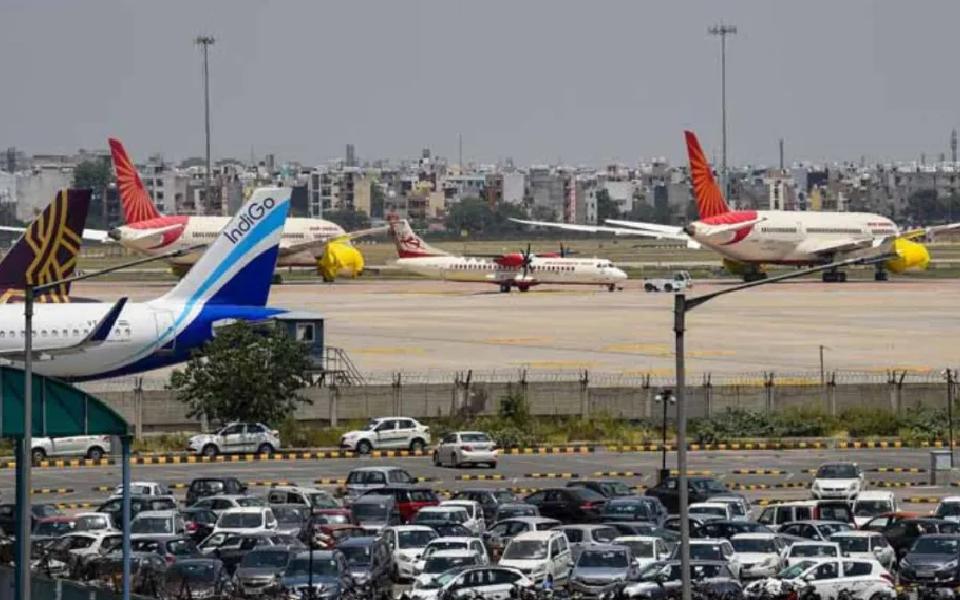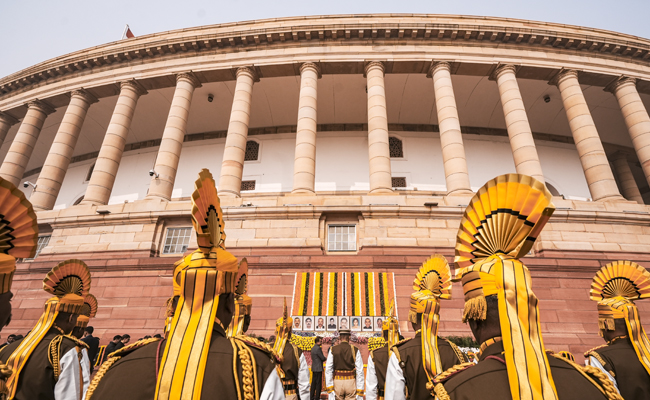Mumbai, May 12 (PTI): Airports Authority of India (AAI) on Monday announced that civilian flight operations will resume at 32 airports that were temporarily shut last week in view of the military standoff between India and Pakistan.
Airlines, including Air India, AirIndia Express, IndiGo and SpiceJet, issued travel advisories/ updates to their customers following the opening of the civil flight operations from these 32 airports.
In a statement on Monday, state-owned AAI said the 32 airports that were closed for civilian aircraft operations till 0529 hours of May 15 are now available for operations with immediate effect. "It is recommended for travellers to check flight status directly with Airlines and monitor airlines' websites for regular updates," the statement said.
Civilian flight operations from the 32 airports across northern and western India, including Srinagar and Amritsar, were suspended from May 9 to May 15. The AAI along with other aviation authorities had issued a series of Notices to Airmen (NOTAMs), announcing the temporary closure of 32 airports across northern and western India for all civilian flight operations.
Security measures were enhanced, and at least 32 airports in northern and western parts of the country were temporarily shut in view of the conflict between India and Pakistan. On Saturday, India and Pakistan reached an understanding to stop all firings and military actions on land, air and sea with immediate effect.
Air India in a statement on Monday said, "Air India will progressively resume flights to and from Jammu, Srinagar, Leh, Jodhpur, Amritsar, Bhuj, Jamnagar, Chandigarh and Rajkot starting Tuesday, May 13." It also said that bookings for these sectors are now open.
Air India Express, in a statement, said it "will gradually reinstate flight operations from previously closed airports, following the lifting of NOTAMS by the authorities."
Starting Tuesday, services will resume on routes including Hindon-Bengaluru, Jammu-Delhi, Jammu-Srinagar, and Srinagar-Delhi, it added.
Operations on Hindon-Mumbai are planned to resume the day after, AirIndia Express said, adding the reinstatement of other flights, including international services from Amritsar, is expected to follow from May 15..
"Following the government directives, the recently closed airports are now available for airlines operations," IndiGo said in a statement.
The Gurugram-based airline also said it has reopened its flight bookings and resumed operations starting May 12, progressively on select routes, beginning with Delhi - Chandigarh, Delhi - Jammu - Delhi and Delhi - Amritsar - Delhi.
Over the course of the next few days, more flights will resume gradually across the network, IndiGo said.
Meanwhile, SpiceJet in a travel update said, "flight restrictions to/from Leh, Srinagar, Jammu, Dharamshala, Kandla & Amritsar have been lifted." "Flights will resume soon," the airline added.
Let the Truth be known. If you read VB and like VB, please be a VB Supporter and Help us deliver the Truth to one and all.
New Delh (PTI) The Congress on Saturday said it is perhaps not very surprising that India is not part of a US-led strategic initiative to build a secure silicon supply chain, given the "sharp downturn" in the Trump-Modi ties, and asserted that it would have been to "our advantage if we had been part of this group".
Congress general secretary in charge of communications Jairam Ramesh took a swipe at Prime Minister Narendra Modi, saying the news of India not being part of the group comes after the PM had enthusiastically posted on social media about a telephone call with his "once-upon-a-time good friend and a recipient of many hugs in Ahmedabad, Houston, and Washington DC".
In a lengthy post on X, Ramesh said, "According to some news reports, the US has excluded India from a nine-nation initiative it has launched to reduce Chinese control on high-tech supply chains. The agreement is called Pax Silica, clearly as a counter to Pax Sinica. The nations included (for the moment at least) are the US, Japan, the Republic of Korea, Singapore, the Netherlands, the United Kingdom, Israel, the United Arab Emirates, and Australia."
"Given the sharp downturn in the Trump-Modi ties since May 10th, 2025, it is perhaps not very surprising that India has not been included. Undoubtedly, it would have been to our advantage if we had been part of this group."
"This news comes a day after the PM had enthusiastically posted on his telephone call with his once-upon-a-time good friend and a recipient of many hugs in Ahmedabad, Houston, and Washington DC," the Congress leader asserted.
The new US-led strategic initiative, rooted in deep cooperation with trusted allies, has been launched to build a secure and innovation-driven silicon supply chain.
According to the US State Department, the initiative called 'Pax Silica' aims to reduce coercive dependencies, protect the materials and capabilities foundational to artificial intelligence (AI), and ensure aligned nations can develop and deploy transformative technologies at scale.
The initiative includes Japan, South Korea, Singapore, the Netherlands, the United Kingdom, Israel, the United Arab Emirates, and Australia. With the exception of India, all other QUAD countries -- Japan, Australia and the US -- are part of the new initiative.
New Delhi will host the India-AI Impact Summit 2026 on February 19-20, focusing on the principles of 'People, Planet, and Progress'. The summit, announced by Prime Minister Narendra Modi at the France AI Action Summit, will be the first-ever global AI summit hosted in the Global South.
Prime Minister Modi and US President Trump on Thursday discussed ways to sustain momentum in the bilateral economic partnership in a phone conversation amid signs of the two sides inching closer to firming up a much-awaited trade deal.
The phone call between the two leaders came on a day Indian and American negotiators concluded two-day talks on the proposed bilateral trade agreement that is expected to provide relief to India from the Trump administration's whopping 50 per cent tariffs on Indian goods.
In a social media post, Modi had described the conversation as "warm and engaging".
"We reviewed the progress in our bilateral relations and discussed regional and international developments. India and the US will continue to work together for global peace, stability and prosperity," Modi had said without making any reference to trade ties.





